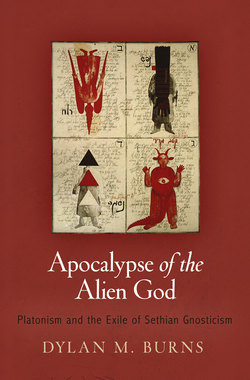Apocalypse of the Alien God

Реклама. ООО «ЛитРес», ИНН: 7719571260.
Оглавление
Dylan M. Burns. Apocalypse of the Alien God
Отрывок из книги
Apocalypse of the Alien God
SERIES EDITORS
.....
For this is the principal fruit of piety: to honor the divine in the traditional (i.e. Hellenic) ways (τιμᾶν τὸ θεῖον κατά τὰ πὰτρια), not because (God) needs it, but because He summons us by this venerable and blessed dignity to worship him. God’s altars, if they are consecrated, do not harm us; if they are neglected, they do not help us.… It is not by doing certain things or forming certain opinions about God that we worship Him properly. Tears and supplications do not move God; “sacrifices do not honor God; numerous votive offerings do not adorn God. Rather Intellect filled with God, firmly established, is united to God, for like must gravitate to like.” … But as for yourself, as has already been said, “let the intellect within you be a temple of God.”145
Iamblichus proclaimed ritual the crown jewel of the philosophical life; one of his ancient admirers addressed him in a letter as “savior of the whole Hellenic world,” and Julian the Apostate based the theological content of his religious reforms on the philosopher’s work.146 Iamblichus would probably not have minded, for he also supported the contemporary Hellenic cult.147 He is pictured by Eunapius as performing miracles for his disciples on the way home from a civic festival, his participation in which would be consonant with his defense of animal sacrifice in the cultic treatise De mysteriis.148 In the early fifth century, Macrobius insisted that the gods preferred to be worshipped by means of traditional, civic cultic imagery, despite its disparity with their transcendent essence.149 As for Proclus, the title of his treatise on theurgic practice says it all: On the Hieratic Art of the Hellenes (περὶ τῆς καθ’Ἕλληνας ἱερατικῆς τέχνης).
.....